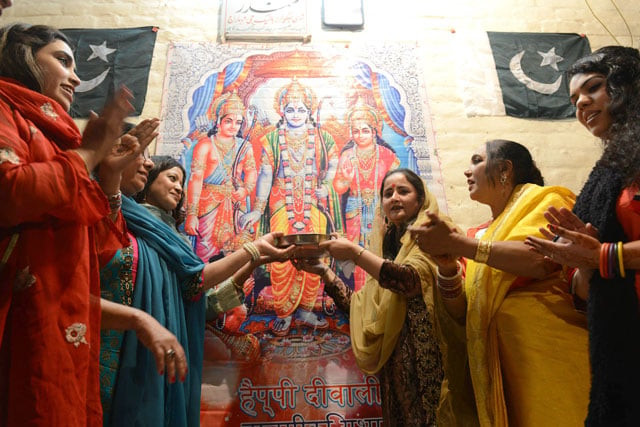Pakistan in, India out of US religious freedom blacklist
New Delhi ignored despite its targeting of Muslims over cow slaughter, Kashmir lockdown

PHOTO: TARIQ HASSAN/EXPRESS
Nine countries, including Pakistan, remained on the State Department’s annual list of “countries of particular concern” for having engaged in or tolerated “systematic, ongoing, egregious violations of religious freedom”. Sudan is the only nation removed from the blacklist.
Pakistan was designated in 2018 after years of US hesitation over concerns on the treatment of minorities. According to the announcement made by Secretary of State Mike Pompeo, Pakistan’s name featured in the list of countries, which are subject to sanctions over religious liberty.
“On December 18, 2019, the Department of State re-designated Burma, China, Eritrea, Iran, North Korea, Pakistan, Saudi Arabia, Tajikistan, and Turkmenistan as Countries of Particular Concern,” Pompeo said in the statement.
“The Department renewed the placement of Comoros, Russia, and Uzbekistan on a Special Watch List (SWL) for governments that have engaged in or tolerated “severe violations of religious freedom, and added Cuba, Nicaragua, Nigeria, and Sudan to this list,” he added.
“Finally, we designated al-Nusra Front, al-Qa’ida in the Arabian Peninsula, al-Qa’ida, al-Shabab, Boko Haram, the Houthis, ISIS, ISIS-Khorasan, and the Taliban as Entities of Particular Concern,” Pompeo said in the statement.
These designations under the International Religious Freedom Act of 1998 for “having engaged in or tolerated systematic, ongoing, egregious violations of religious freedom” underscored the US commitment to protect those who seek to exercise their freedom of religion or belief, Pompeo said.
The statement said that persecution and discrimination on the basis of religion or belief existed in every region of the world. “The United States continues to work diligently to promote religious freedom and combat abuses,” it said.
Rights groups and US officials accuse China of incarcerating at least one million Uighurs and other Muslims, and US ally Saudi Arabia is in the list for following a rigid school of religious thought. Sudan as well as Uzbekistan, which was removed from the blacklist in 2018, were kept on the watchlist.
However, the recent developments in India, which see a phenomenal rise in attacks on Muslims since the Hindu nationalist government of prime minister Narendra Modi came to power, is not included in the blacklist.
During the five years of Modi’s first term, hate crime against Muslims soared. According to the Indian media 90% of religious hate crimes in the last decade have occurred since Modi’s Bhartya Janata Party (BJP) came to power.
Soon after Modi was re-elected as the prime minister, he abrogated the special status of Kashmir and imposed a harsh lockdown, which still continued. Also the government’s latest citizenship act and created a nation-wide anger among its minorities over charges it marginalises Muslims.
This month, the US government announced designations of 68 individuals and entities in nine countries for corruption and human rights abuses under the Global Magnitsky Act, including four Burmese military leaders responsible for serious human rights abuses against the Rohingyas.
“Our actions have been, and will continue to be, consistent with our position on religious freedom. No country, entity, or individual should be able to persecute people of faith without accountability. We have acted, and we will continue to do so,” Pompeo said.



1725254039-0/Untitled-design-(24)1725254039-0-208x130.webp)















COMMENTS
Comments are moderated and generally will be posted if they are on-topic and not abusive.
For more information, please see our Comments FAQ